All the celebrities mentioned in Taylor Swift’s ‘The Tortured Poets Department’ album
Taylor Swift's new album, "The Tortured Poets Department" dropped on April 19, and in the lyrics of her songs, she also name-drops a few celebrities.
Swift has previously named celebrities in her songs — for example, she famously references Leonardo DiCaprio in "The Man" — and sometimes uses their stories as a vehicle for storytelling.
Her most recent album is filled with songs titled after proper names, including “Robin,” “Cassandra,” “Peter,” “Chloe or Sam or Sophia or Marcus,” and “thanK you aIMee” — none of which outright state the full names of those she is referring to (but boy, do fans have theories!).
In "TTPD," Swift outright names at least 10 celebrities, bands and historical figures. We'll explain how they're mentioned below.
Dylan Thomas
One of the first names dropped on the album is Dylan Thomas. Thomas was a 20th-century Welsh poet known for “Do not go gentle into that good night.”
I laughed in your face and said,
“You’re not Dylan Thomas, I’m not Patti Smith”
As part of the chorus, Swift sings that both she and her lover are "modern idiots" not to be confused with the famous poet or rocker.
Patti Smith
Smith and Thomas both resided at the Chelsea Hotel in New York at separate times, Smith wrote in her 2010 memoir, "Just Kids."
Swift specifically mentions the hotel in the next line:
“You’re not Dylan Thomas, I’m not Patti Smith”
This ain’t the Chelsea Hotel
Smith was born less than 10 years before Thomas died. She's a singer-songwriter and poet associated with the punk rock movement but is also renowned for her writing.
In her aforementioned memoir, she chronicled her relationship with Robert Mapplethorpe in the summer of 1969, when they made a home at the Chelsea Hotel in New York.
In her memoir, Smith mentions Thomas and his influence on the space, as he spent his last few days there before he died at a hospital in New York in 1953.
Charlie Puth
Apropos of seemingly nothing, in the titular song of her album, Swift references another pop artist, Charlie Puth:
We declared Charlie Puth should be a bigger artist

Puth first rose to prominence on YouTube and wrote the breakout hit "See You Again" by Wiz Khalifa in memory of actor Paul Walker for the soundtrack of "Furious 7."
He's since released several smash hits including “One Call Away,” “Marvin Gaye,” and “We Don’t Talk Anymore.”
In a viral New York City performance in 2022, Puth called Swift a "big inspiration" and performed portions of several of her songs.
He also released a song called "Tears On My Piano" and confirmed it was inspired by Swift's song "Teardrops On My Guitar."
Lucy (Dacus?)
While it's not entirely clear which Lucy Swift is referring to in the song here, fans have speculated that it's musician Lucy Dacus of Boygenius fame.
Sometimes I wonder if you’re going to screw this up with me
But you tell Lucy you’d kill yourself if I ever leave
Fans believe Swift is singing about Dacus here. Swift’s rumored ex, Matty Healy, and Dacus were spotted at an "Eras Tour" show in May standing near each other. Healy and Dacus also reportedly had a public falling out on X, formerly known as Twitter, a few months later.
Jack (Antonoff?)
Also in the album's second track, Swift reveals that she talked to her friend "Jack."
And I had said that to Jack about you So I felt seen
Every we know understands why it’s meant to be
‘Cause we’re crazy.
It's likely safe to assume that she's referring to her close friend and collaborator, Jack Antonoff. For a timeline of their years-long friendship, click here.
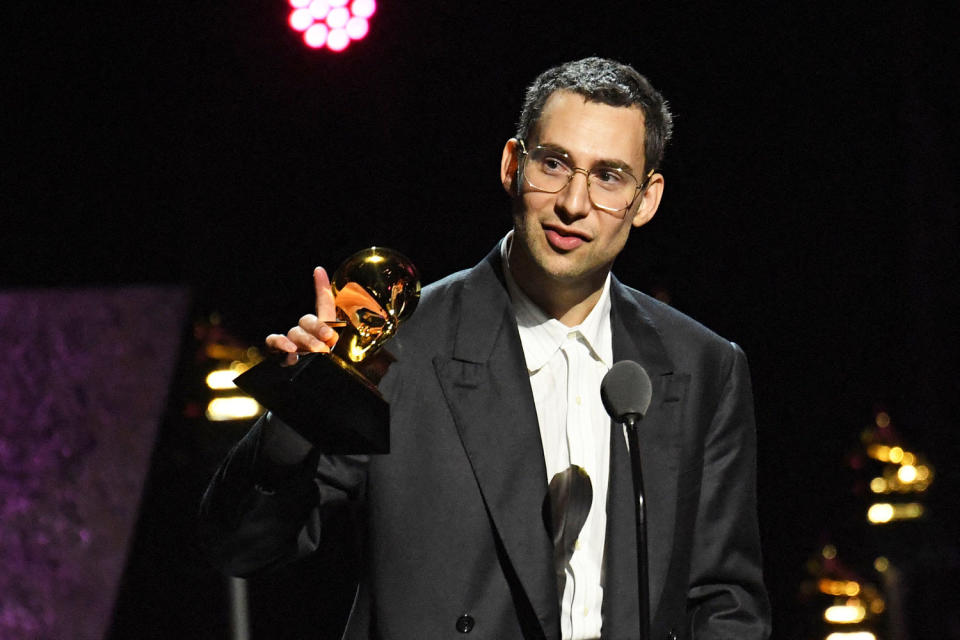
The Blue Nile
Not to be confused with the jewelry store of the same name, Swift mentions Scottish band The Blue Nile in her track "Guilty as Sin."
"Drowning in the Blue Nile,
He sent me 'Downtown Lights,'
I hadn’t heard it in a while."
The band released the song "The Downtown Lights" in 1989 — the year Swift was born — as part of their second album, "Hats."
Clara Bow
Swift devotes an entire song to early Hollywood actor Clara Bow, who rose to fame during the silent film era before successfully transitioning to the "talkies."
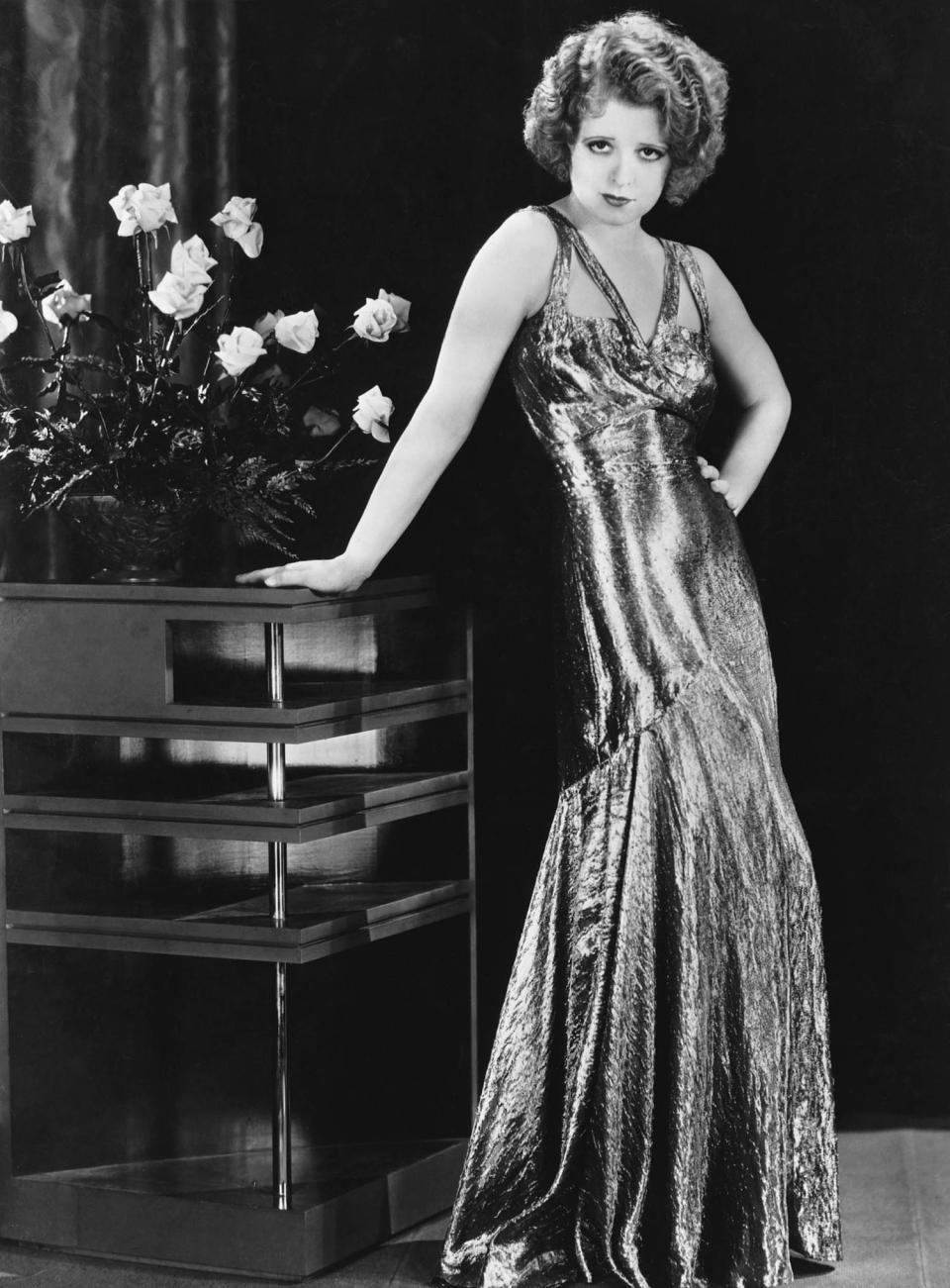
Bow was known as the original "It Girl" and became the target of much tabloid coverage at the time.
You look like Clara Bow in this light, remarkable
All your life, did you know you’d be picked like a rose?
For more on Bow's life and an interview with her surviving family about Swift's new song, click here.
Stevie Nicks
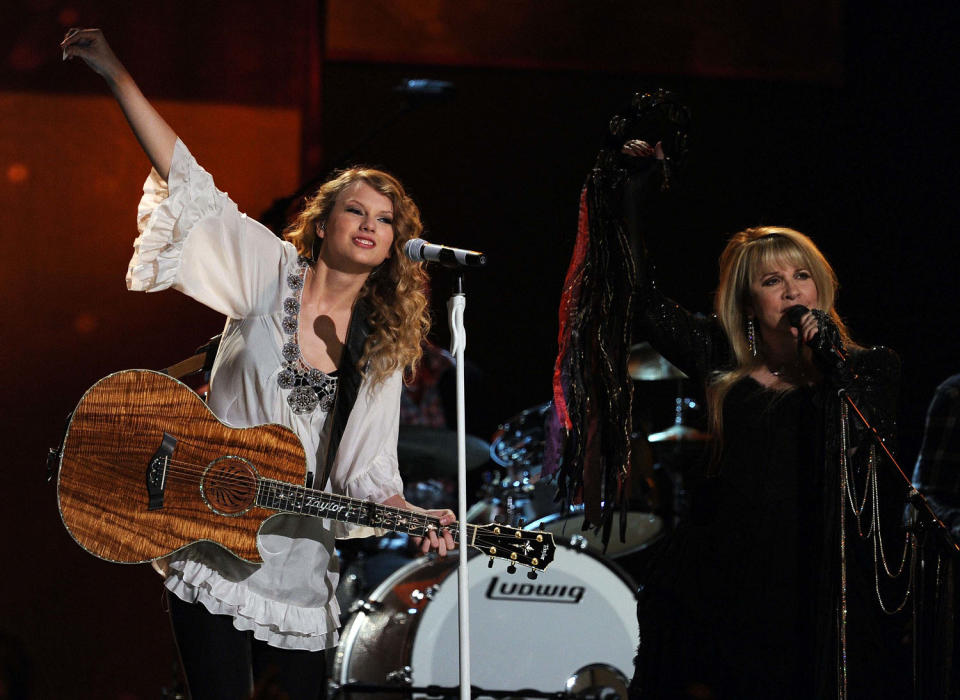
Also in the song "Clara Bow," Swift sings about Fleetwood Mac star Stevie Nicks.
You look like Stevie Nicks in ‘75, the hair and lips
Crowd goes wild at her fingertips, half moonshine, a full eclipse
Swift left a hint about Nicks being mentioned in the album ahead of the April 19 release. A tambourine similar to one Nicks used to use was at the Los Angeles Spotify pop-up, draped with white lace.
Nicks wrote an introductory poem for the Target version of “TTPD” as well.
The Starting Line
In “The Black Dog,” which is also a London bar, Swift mentions the Pennsylvania band The Starting Line.
And I hope it’s s---y in The Black Dog when someone plays The Starting Line,
And you jump up, “But she’s too young to know this song!”
Aristotle
In "So High School," Swift outlines a "bittersweet" romance that reminds her of high school, complete with an apropos reference to her schoolwork:
You know how to ball, I know Aristotle
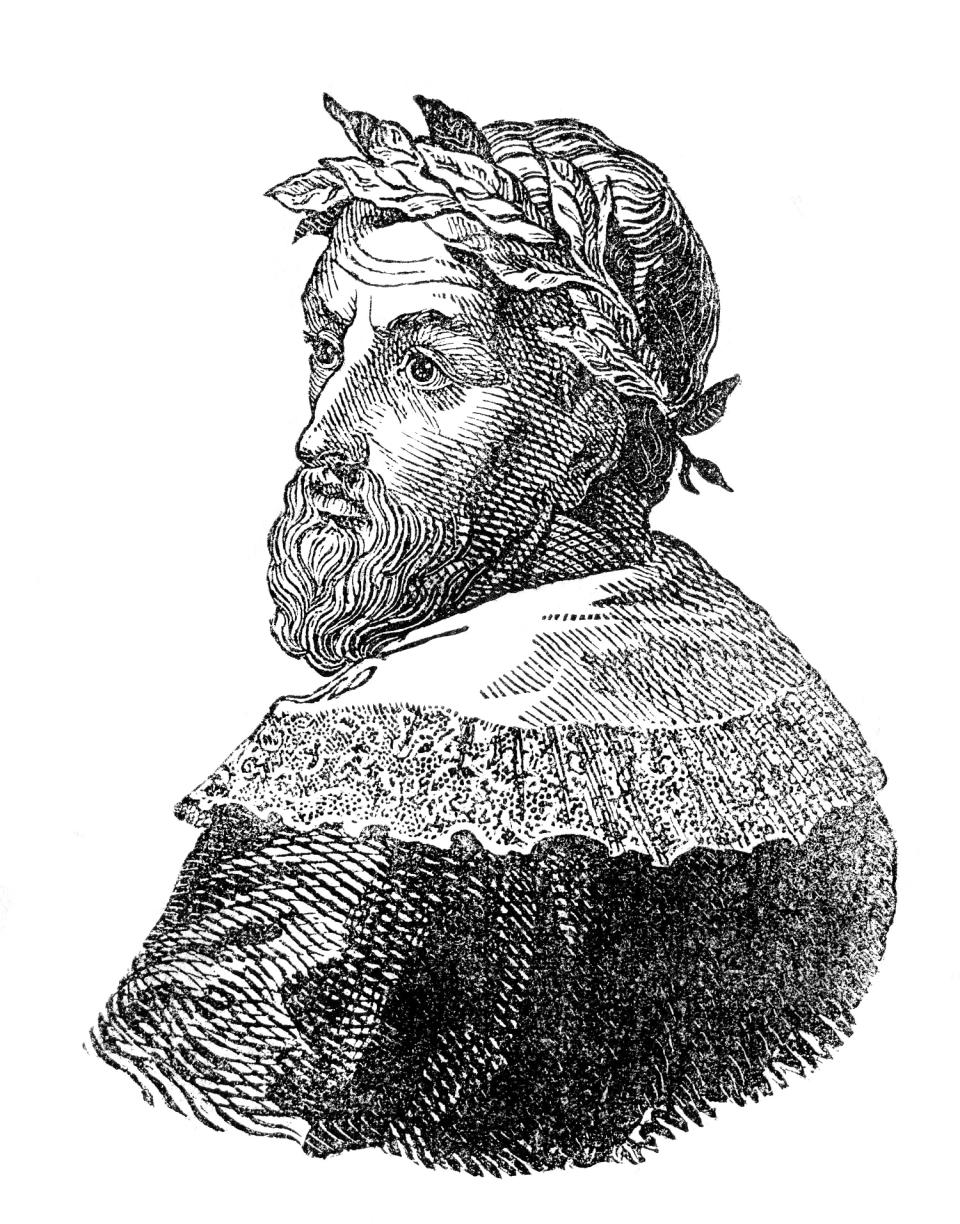
Aristotle was a Greek philosopher who lived from 384 to 322 B.C.
He was known for his philosophy, of course, but also made significant contributions to the sciences. High school students often learn about Aristotle when learning the three main methods of rhetoric: ethos (ethics), pathos (emotional) and logos (logic).
Cassandra
In the song "Cassandra," Swift seems to be referencing a story from Greek mythology.
When the truth comes out, it's quiet
So they killed Cassandra first
'Cause she feared the worst
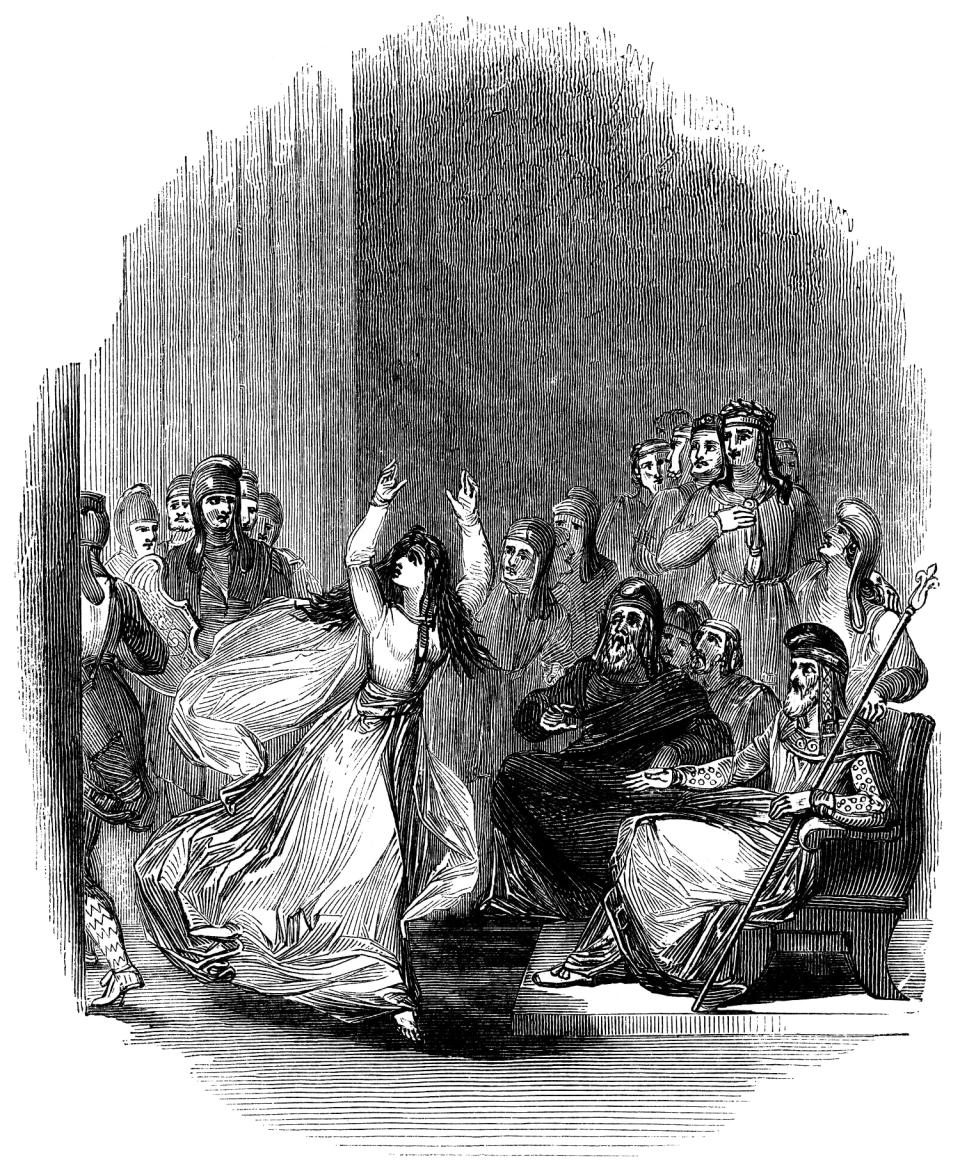
Cassandra (or Kassandra) in Greek mythology was a Trojan priestess dedicated to the god Apollo. He destined her to make true prophecies but never to be believed. Generally, in more recent times, she's used as a rhetorical device to indicate when someone is making a true prediction — usually of impending disaster — but isn't believed.
The reference also would explain the busts that were on display at the Spotify "TTPD" library pop-up in Los Angeles.
Some fans believe that this song is actually an oblique reference to Kim Kardashian.
This article was originally published on TODAY.com
